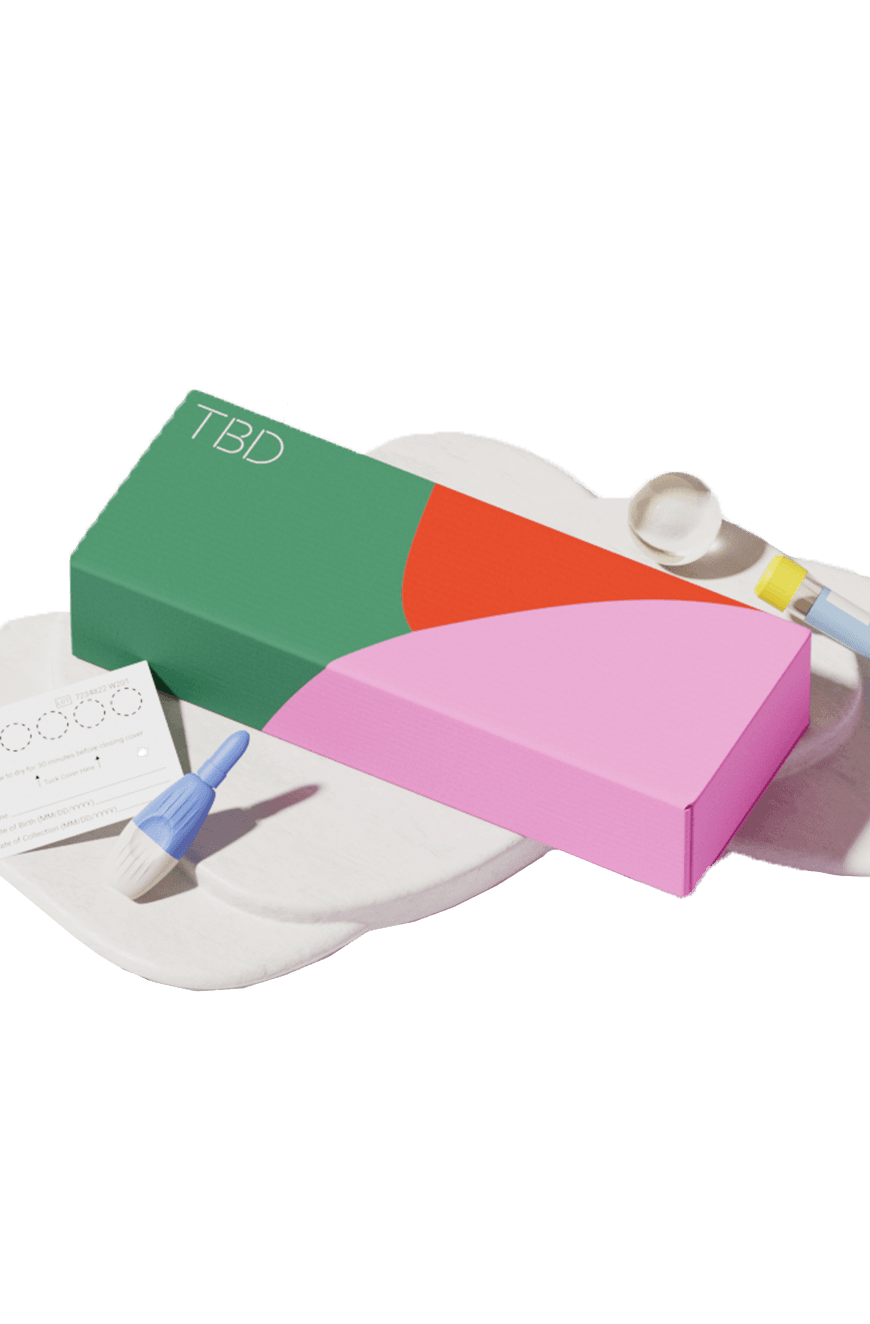| TBD Panels | 3-Panel STD Test | 9-Panel STD Test | 5-Panel STD Test | 3 Site: Oral, Rectal, Genital |
|---|---|---|---|---|
| Chlamydia |  |  |  |  |
| Gonorrhea |  |  |  |  |
| Trichomoniasis |  |  |  | |
| HIV (Ag/Ab) |  |  | ||
| Syphilis |  |  | ||
| Hepatitis B & C |  | |||
| HSV I |  | |||
| HSV II |  |

- 8 E Charleston Blvd
- Las Vegas, NV 89104
- Tues and Fri
- 10 AM – 2PM
- Contact us:
- +1 (702) 909-0554
- hello@tbd.health

| TBD Panels | 3-Panel STD Test | 9-Panel STD Test | 5-Panel STD Test | 3 Site: Oral, Rectal, Genital |
|---|---|---|---|---|
| Chlamydia |  |  |  |  |
| Gonorrhea |  |  |  |  |
| Trichomoniasis |  |  |  | |
| HIV (Ag/Ab) |  |  | ||
| Syphilis |  |  | ||
| Hepatitis B & C |  | |||
| HSV I |  | |||
| HSV II |  |

By Adrienne Ton, Nurse Practitioner
TLDR: HPV is a very common infection that typically clears on its own. It can lead to cancer and/or genital warts. The only/best test we have for this is the cervical cancer screening test. We have really great vaccines that can help protect you against HPV and prevent your risk of developing an HPV-related cancer.
When people talk about sexually transmitted infections, it’s rare to hear someone talking about HPV. Yet, the Human papillomavirus (HPV) is a common viral STI - and is actually the most common sexually transmitted infection globally. Sometimes, this virus is mistaken for similarly named - but very different(!) - viruses, such as HSV (herpes simplex virus) or HIV (Human Immunodeficiency Virus).
TBD Recommends: At-Home HPV Kit (vagina havers)
What is HPV?
HPV is a type of virus (double-stranded DNA virus if you want to get really specific) that only infects humans. There are over 200 identified types of HPV strains.
In recent years, it has been a hot topic for discussion since the virus can increase your risk of cancer and genital warts. Of the over 200 strains of HPV, there are only a few of those “high risk” strains that are more likely to be associated with cancers, such as cancers of the cervix, penis, or mouth/throat (oropharyngeal). Two of those strains (HPV Type 16 and 18) are linked to more than half of cervical cancer cases.
How do you get HPV?
According to the CDC, 80 percent of people will get an HPV infection in their lifetime; but only some people infected develop cancer. So if you have been sexually active, it’s very likely you’ve been exposed at some point.
HPV is spread by sex or by close, prolonged skin to skin contact with an infected area (think genitalia touching). Both men and women can have HPV without knowing it and spread the virus to their partners.
How do I know if I have HPV?
Most people don’t know if they have HPV or not, because it’s not commonly screened or tested for unless you’re getting a pap smear (or cervical cancer screening) after age 30. Because it’s so common, most healthcare providers don’t recommend testing you even if you know you’ve been exposed to HPV.
Aside from pap smears, healthcare providers currently do not have good tests to find out a person’s HPV status only, and there is no approved test to find HPV in the mouth or throat at this time.
It is also generally not tested since it’s so common and because most cases of HPV infections will clear on their own within 1 year. (Good job, immune system!)
If you’re a person with a vagina and a cervix, you should receive your regularly recommended HPV screening during your cervical cancer screening. We typically start screening people during their cervical cancer screenings (or pap smears) around age 30 and above in a test that checks for abnormal cytology (i.e. abnormal precancerous or cancerous cells) and HPV infection (i.e. high risk HPV types that can lead to cervical cancer). There are some new recommendations from the American Cancer Society to start screening for HPV a little earlier, such as at age 25, but we don’t do this commonly.
If you have a genital or anal wart or if you have have a cancer in your throat, penis, or cervix, you might receive further evaluation for HPV. Otherwise, this isn’t something healthcare providers currently routinely test for unless it’s related to cervical cancer screening.
Learn More: Preventing HPV Infection
Wait so - What do I do if I have HPV?
If you have a wart caused by HPV, you can sometimes receive treatment such as cryotherapy or home treatment options to help remove the warts.
If you had HPV detected on a test like a cervical cancer screening, your healthcare provider will usually tell you what the next steps are. Since certain HPV infections do increase your risk of developing cancer, your healthcare provider may recommend more frequent monitoring with pap smears or sometimes further evaluation and/or treatment. These recommendations are based on your other cancer screening test results.
Often, people who are known to have HPV without signs of cancerous cells, are monitored more frequently since these HPV infections typically clear on their own.
If you do find out that you have HPV, make sure to get checked out for other sexually transmitted infection. An infection with HPV has been linked to greater increases in risk for other sexually transmitted infection, so it’s always good to get evaluated for this
What’s the deal with the vaccine?
TL: DR; Yes, there is a vaccine that helps prevent cancer!
It should be noted that HPV doesn’t always lead to cancer, and there’s even more good news: HPV has a vaccine. When this vaccine series is completed this vaccine prevents up to 90 percent of cancers that cause HPV. For this vaccine, it’s important to remember that it’s best to receive the vaccine series before you’re exposed to HPV, so current CDC guidelines recommend boys and girls ages 11-12 years old receive the vaccine.
Missed that window? The CDC still recommends an adjusted vaccine schedule for those aged 15-26 years old.
Older than that? Talk with your clinician- occasionally individuals do get vaccinated later in life. Some adults ages 27 through 45 who have more risk for HPV may benefit from getting the vaccine series - however, not every insurance plan will cover this at this age.
Vaccination and using protection during sex is important in preventing HPV and lowering your risk of cancer. If you have any questions about HPV- ask your clinical expert at TBD Health and we can help you connect to further screening if needed.
This article provides information about sexual health, healthcare and/or related subjects. The blog content and any linked materials herein are not intended to be, and should not be construed as a substitute for, medical or healthcare advice, diagnosis or treatment. Any reader or person with a medical concern should consult with an appropriately-licensed physician or other healthcare provider. This blog is provided purely for informational purposes. The views expressed herein are not sponsored by and do not represent the opinions of TBD HEALTH INC.
Email us and a team member will get back to you within 24 hours. We’re also available via call or text at +1 (702) 909-0554
Sign up below to get 10% off
By providing my email address, I agree to receive email with marketing communications from TBD Health including news, promotions and exclusive offers. I understand that I can opt out at any time by using unsubscribe links. Visit our Terms of Service or Privacy Policy for more information.






